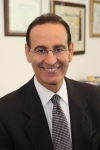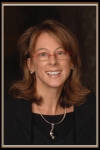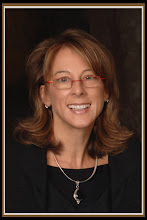“Did you know that most people with cancer do not die of their cancer, but rather from the complications and consequences of cancer and its treatment? And these complications and consequences are often preventable, or can be successfully treated.”
Keith Block, 2012 Annie Appleseed CAM Conference

After hearing Dr Keith Block present at the Annie Appleseed CAM conference, I knew I needed to interview him, to share with you all that I learned from him at the conference and more. Thank you, Dr Block for taking the time to share with me your roadmap for surviving and thriving. Thank you for sharing your thoughts on the lack of success cancer treatment has had on mortality rates.
Unless otherwise noted, the information in this post is derived from his presentation and our interview.
In 1971, President Nixon declared war on cancer. Forty-one years and billions of dollars later, we have yet to win the war.
In fact, mortality rates have declined by less than 5% in the last 60 years! In this same time period, mortality from heart disease has dropped 64%. It’s not that we don’t have new cancer drugs; it’s just that they’re not offering major improvement in survival time. Most often these new drugs have only improved outcomes by 4-16 weeks.
The numbers tell the story: we are not winning the war on cancer.
“
Cancer itself is a disease of defects” KB
Everyone seeks the infamous magic bullet for cancer, the cure. But cancer is not an isolated group of errant cells waiting to be annihilated by a wonder drug. Cancer is not merely a tumor; it is an underlying condition, a disease of defects – in genes, of disruption in the microenvironment where the disease resides, as well as in the personal life of the patient and the family in crisis
.
It is based on abnormal patterns driven by genetics and lifestyle. It reflects changes in your body all the way down to the microscopic and molecular levels, changes that began long before you had any symptoms of cancer—indeed, long before cancer was diagnosed or even detectable. The battle against cancer is not so much against a single defect in a protein or cancerous mutation, it is a war on many fronts; it has multiple targets. Therefore – with the possible exception of one or two types of early stage cancer, using one bullet to eradicate this disease will almost always fail.
We need a multi-targeted approach. Even the latest breakthrough drugs that hit two targets don’t come close to addressing this problem. In theory, using many more than two drugs to hit many targets at the same time would help, however, the cost and toxicities render this unrealistic. And, keep in mind, that cancer is sneaky. If you put up a roadblock, cancer will find a way to get around it. But this is not the case for nutraceuticals, where their combined usage has negligible risk and toxicity; they are able hit multiple targets – and thus can address substitute or compensatory pathways – and are relatively inexpensive. Plant extracts such as turmeric, lycopene, and green tea can target cancer on many levels; they hit many targets and cut off pathways, and they can address those molecular targets without the toxicity of multiple chemotherapies. For example, crucifers, (broccoli, cabbage and the like) can help reduce adverse effects of estrogen; flax has demonstrated a reduction in ki-67, a marker of cancer cell proliferation; green tea markedly countered the malignant conversion for patients at high risk for prostate cancer. While no one is suggesting that these compounds will single-handedly eradicate cancer, each provides a powerful punch in addressing various mechanisms that drive cancer, and can synergistically interact to create an inhospitable microenvironment where cancer cells lose ground, toxicity is lessened and treatments work better.
Regarding Chemotherapy….
Dr Block, how can chemo be more effective and less toxic?
One of the most powerful ways to improve the response to chemotherapy is to administer chemo drugs in concert with optimal biological rhythms. With this technique, called chronomodulated chemotherapy, pumps are programmed to deliver the largest dose of the drug at a time when cancer cells are most susceptible, and normal cells are the least vulnerable. And the timing is unique to each drug. Think of it like a pointed bell curve (sine wave curve); the drug is at first administered at low dose, slowly ramps up, peaks and then tapers off. The research supporting this unique form of chemotherapy infusion demonstrates a reduction in toxicity, improved response, and improved outcomes and survival in a number of studies. In fact, the literature contains studies showing chronomodulation of chemotherapy can even allow for patients to be successfully re-challenged with the identical drugs they previously received and needed to discontinue, either because they were ineffective, became ineffective prematurely, or were too debilitating to tolerate.
For example, for metastatic colon cancer patients, studies show that administering chemotherapy at the optimal time can halve toxicity and double treatment response. For advanced metastatic ovarian cancer, a study in the journal Cancer reported that optimal timing of chemotherapy can reduce toxic side effects by 50 percent and quadruple five-year survival.
What about the safety of antioxidants and other supplements during treatment?
Our published
studies have shown that most antioxidants displayed no interfering effect with chemotherapy. In fact, they actually synergistically interact to enhance treatment and diminished the side effects of chemo. For example, it may be possible to mitigate some of the cardiac injury from drugs like Herceptin by taking agents like hawthorne and COq10. In addition, glutamine, vitamin B6, and alpha-lipoic acid appear to help prevent neuron injury (neuropathy).
Click
here to read more on supplementation and toxicity.
But the doctor said he “got it all!”
Cancer is not simply a visible disease. It’s not just about the macroscopic tumors that can be seen on a scan. The surgeon saying “I got it all,” while certainly a message to be celebrated, should not signal the end of treatment. One has to think of the disease systemically, not locally; it is a microcellular condition that is impacted by the extracellular environment that the cells reside in. The typical gold standard, surgery, chemo and radiation, so often fail to prevent the spread or recurrence of the disease because they often miss picking up renegade cancer cells, miss strengthening the body’s biological integrity, and do not reach all of the underlying molecular accidents that initiated cancer in the first place. As a result, even if the original tumor is removed, the environment that it resided in – as well as the treatments themselves – can create a biological imbalance for cancer to recur. In addition, many cancer treatments leave a patient with considerable oxidative stress and inflammation, well known to interfere with treatment, increase various side effects including neuropathy, cardiomyopathy, fatigue and mucositis, and provide the fuel for clonal evolution – increasing the aggressiveness of otherwise dormant cells for their next time around.
From a logical point of view…if cancer liked my body enough to grow cancer once, why not again…I know that I need to make the terrain less hospitable, to change the environment in which it was able to grow. EJ
Remember, even when the primary tumor is removed, micro-metastases may already have migrated to and seeded other parts of the body. In fact, it has been estimated that many cancer patients unknowingly already have metastases, malignant cells that have broken off the original tumor, traveled through the bloodstream to far-flung sites in the body, and begun the insidious process of growing in another dangerous tumor. Keep in mind that all cancers start with a genetic glitch
in a single cell. Conventional cancer treatment does little to prevent cells from regrouping, proliferating, and forming new tumors. Just because you have achieved remission through elimination of the primary tumor does not mean you are home free. However, the good news is that cancer cells are remarkably fragile. Unless they are nurtured and protected by the biochemical terrain in your body, they have a difficult time surviving. Your internal biochemistry can either nourish cancer cells or make the terrain inhospitable to cancer.
Walking just three to five hours a week can cut cancer death rates by one-half. KB

We know that lifestyle is directly related to cancer, and that diet and exercise are associated with lower cancer recurrence rates and longer survival. Recently, the ACS issued new guidelines urging doctors to talk to their cancer patients about eating right, exercising and slimming down if they’re too heavy. It’s a start, but not specific enough for most of us, nor is it comprehensive enough to help win the war. Talk to your doctor – ideally one experienced in integrative oncology – about devising your own personalized plan for wellness. By combining conventional treatments with a personally tailored regimen of natural agents, fitness regimens, and stress management- strategies, we can support our body to improve the chances of defeating cancer.
One last note, if I may. While in most cases, cancer does not “just happen,” it is also something for which we cannot blame ourselves. Cancer is not
caused by a “bad” diet or a toxic environment. Food is not either good or bad; let’s just say that some foods are better than others. However, as Dr Block said, cancer is “driven by genetics and lifestyle”. That said, diet and exercise can have a profound effect on the initiation and progression of the disease. If a genetic defect occurs, our food choices either support or suppress the development of cancer. I don’t blame myself for getting cancer, but yet now that I fully understand the power of food, I make conscious food choices to support my body against cancer. Knowledge is power, and if everything I put in my mouth either supports or inhibits cancer, then now I am empowered to gain control. Joy is also an important ingredient for health; so while we want to make healthy food choices, we also need to remember that occasional indulgences and enjoying meals with friends are good for the soul. It’s all about balance and in giving your body what it needs. Empower yourself to be an active participant in your healing and an advocate for your health.
In good health,
Elyn
Keith I. Block, MD, is an internationally recognized expert in integrative oncology. In 1980, he co-founded the Block Center for Integrative Cancer Treatment in Skokie, Illinois, the first such facility in North America, and serves as its Medical and Scientific Director. He is the author of Life Over Cancer: The Block Center Program for Integrative Cancer Treatment.
Dr. Block is the Scientific Director of the Institute for Integrative Cancer Research and Education, where he has collaborated with colleagues at the University of Illinois at Chicago, the University of Texas M.D. Anderson Cancer Center in Houston and Bar Ilan University in Israel. Dr. Block is also the founding editor-in-chief of the peer-reviewed journal, Integrative Cancer Therapies (ICT). In 2005, he was appointed to the National Cancer Institute’s Physician Data Query (PDQ) Cancer CAM Editorial Board, on which he continues to serve today.
Elyn Jacobs is a breast cancer survivor, a professional cancer coach, a radio talk show host, and the Executive Director for the Emerald Heart Cancer Foundation. Elyn empowers women to choose the path for treatment that best fits their own individual needs. She is passionate about helping others move forward into a life of health and wellbeing. To learn more about Elyn’s coaching services, please visit:
http://elynjacobs.wordpress.com/. To tune into the
Survive and Live Well radio show, please visit
http://www.w4cs.com/, Tuesdays at 1pm (est).



















